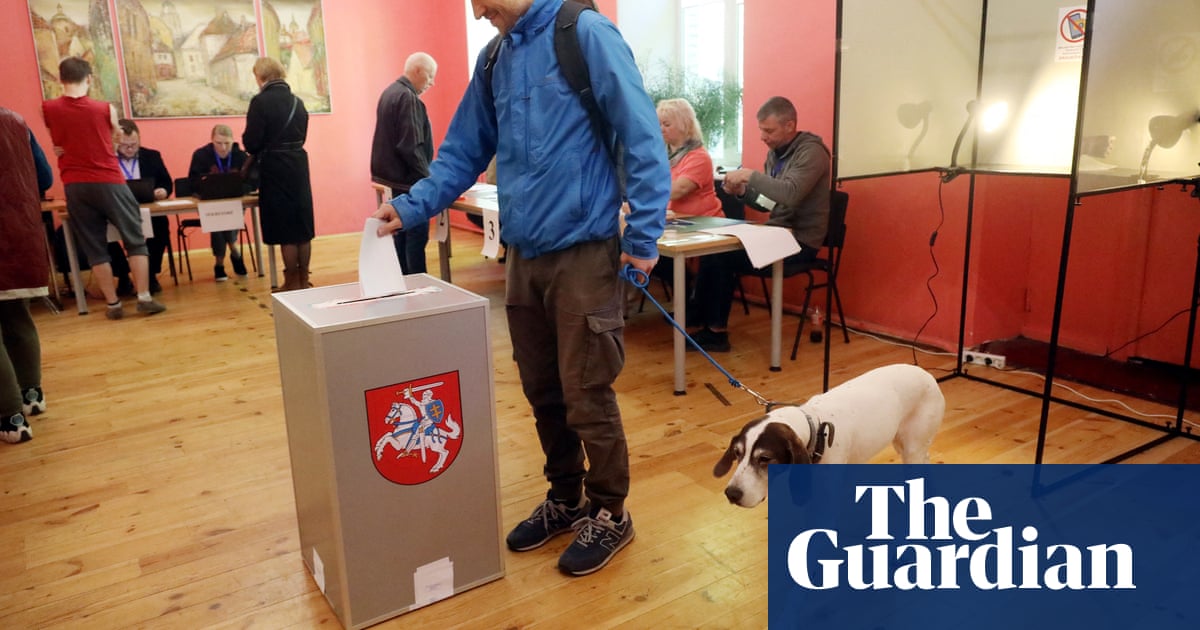
Lithuanians are going to the polls on Sunday to vote in a presidential election amid growing fears about Moscow and security in the Baltic region.
The incumbent, Gitanas Nausėda, a staunch supporter of Ukraine in its war with Russia, is the clear favourite of the seven candidates after a campaign focusing on security concerns in the Baltic states, according to polls showing he had a 29% share of the country’s 2.5 million voters.
The focus of his campaign has been Russia’s war in Ukraine and its impact on national security, and the prospect of a potential act of aggression by Russia on Lithuania’s own territory.
The prime minister Ingrida Šimonytė, 49, the only woman running, is Nausėda’s closest rival with 14% of support.
Just over half of Lithuanians believe a Russian attack is possible or very likely, an Elta/Baltijos Tyrimai poll has found; this is a common feeling across the Baltics.
Last week the country’s foreign minister, Gabrielius Landsbergis, raised the prospect of an ad hoc coalition of western countries sending military training personnel into Ukraine backed by ground-based air defence, lending support to ideas mooted by the French president, Emmanuel Macron.
Most of the candidates running in Sunday’s election, including Šimonytė and Nausėda, have told the national broadcaster they kept food stockpiles at home ready in case of a military conflict. “I am doing all I can to make sure it will not be needed,” Nausėda said during a televised debate.
Nausėda and Šimonytė support increasing defence spending to at least 3% of Lithuania’s GDP, higher than the expected 2024 average in the EU of 2%, and a fraction of the estimated 30% of GDP the Kremlin is putting in Russia’s war economy.
The Baltic states feel exceptionally vulnerable to the threat from Russia, with the first of 4,800 German troops arriving last month as part of a Nato plan to strengthen security between now and 2027. European leaders believe that even if a peace deal were struck in Ukraine, Putin would regroup with the aim of launching further incursions in the next decade.
The aim is to pay for the modernisation of Lithuania’s army and infrastructure to support a brigade of German troops – and their families – that will be deployed in Lithuania and combat-ready from 2027.
While agreeing on Russia policy, the two top candidates in the election differ on issues such as same-sex civil partnerships, which Nausėda opposes, and have a history of acrimonious bickering and refusing to speak to each other.
Lithuania’s president has a semi-executive role, which includes heading the armed forces and chairing the supreme defence and national security policy body, and representing the country at EU and Nato summits.











